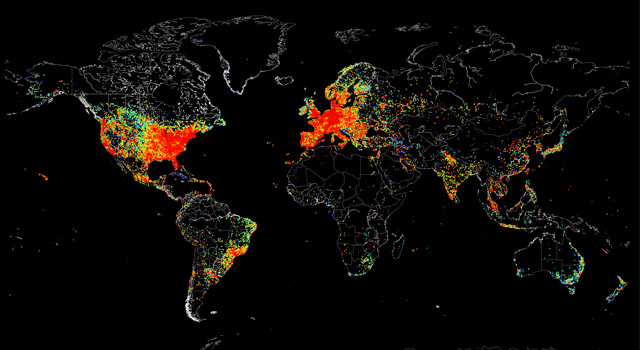
The Internet is a vast series of tubes, computers and devices, networked together sharing the same information. But where do all those pieces of hardware reside? Shodan founder John Matherly found out when he pinged all the devices on the Internet. Read more…
An online brain for the world’s robots
Scientists are working to build machines that can see, hear, comprehend natural language (both written and spoken) and develop an understanding of the world around them, in much the same way that people do. Read more…
Everything you wanted to know about Instagram’s Hyperlapse
Instagram released a new app this week called Hyperlapse, which allows you to make timelapse videos quickly, easily and with impressive automatic image stabilisation technology. Read more…
Mobile phone ‘kill switches’ to be law in California
The governor of California signed a law on Monday that will require all mobile phones sold in the state to include an activated “kill switch”, which will ensure the owner of a stolen phone can freeze the device and wipe its contents from a remote location. Read more…
Will genetic alterations modify human society?
As a side effect of science fiction novels, many of us find ourselves with an outlook of the future that’s full of possibilities. One of the various futuristic innovations is the ability to genetically alter our DNA, while in utero or even after birth. While once pure science fiction, or strictly limited to altering the DNA of plants, we’ve already seen radical procedures like genetically altered human embryos. The alteration is designed to illuminate developing embryos, but it’s just a step away from modifying embryos to eliminate disease. Read more…
We can’t let tech giants control our news values
Several years ago, Vint Cerf visited the Guardian in his capacity as Google’s “evangelist in chief” — the kind of Silicon Valley title you can carry off only if you invented the Internet, which, luckily for Cerf, he had. He showed us mini-robots and talked about building the internet in space. We smiled indulgently, inwardly questioning the robustness of his faculties, and talk turned inevitably to “the future of newspapers”. “Well,” said Cerf, rotating his robot, “the problem is there’s ‘news’ and there’s ‘paper’, and those are two separate things. Read more…
Mind control making life with ALS better
While Eric Valor’s brain remains sharp, he can’t carry out most functions on his own since becoming paralysed by Lou Gehrig’s Disease. Valor took part in an experimental project this year that successfully used a wireless headset that reads brain waves to allow him to request medical help and control the lights or television simply by thinking commands. Read more…
Flaw lets hackers break your Wi-Fi router’s security with one guess
Typically, attacks against your Wi-Fi router require a lengthy attempt to guess any codes and passwords. Not if you use 0xcite’s new technique, however. The research firm has detailed a flaw in some router chipsets that lets hackers bypass the push-button security of Wi-Fi Protected Setup (WPS) almost instantly. Read more…
Questions for IBM’s Watson
Sometimes, figuring out the right question is harder than finding the answer. Just ask Watson.
Watson’s claim to fame rests on beating human champions in the question-and-answer game “Jeopardy!” In the three years since, IBM has been working to move Watson into the marketplace, step by step. The next step came on Thursday, when the company made a Watson technology, Discovery Advisor, available for companies and research organisations to use as a cloud service. Read more…
Our growing obsession with screens is killing our brains
Paperback readers, rejoice! It turns out reading books on e-readers doesn’t give your brain the same experience as those paper books gathering dust on your bookshelf. A new study by European researchers found that recollection of plot points and story lines was “significantly” worse for readers who read on a Kindle versus a paperback book. Read more…




